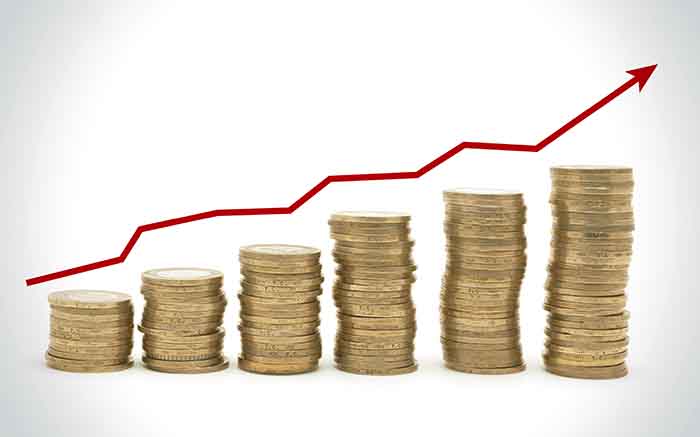The Consumer Prices Index (CPI) 12-month rate ratcheted up to 3.1% from 3% in October, a height it hasn’t seen since March 2012.
A small drop in the cost of airline fares and rising prices across a range of recreational goods such as computer games were the main contributors to the higher prices in November, according to the Office for National Statistics (ONS).
Tuesday’s uptick in CPI means Bank of England governor Mark Carney must pen a letter to chancellor Philip Hammond outlining how the central bank plans on reining inflation back to its 2% target.
“At least it’ll be an easy letter to write,” said Ben Brettell, Hargreaves Lansdown senior economist. “We’re still seeing the effect of the weaker pound filtering through to prices. Given Carney and colleagues raised interest rates last month, he’ll also be able to point to the fact that, for once, he’s doing something about it too.”
Sterling gained a minimal third of a cent against the dollar the morning of the ONS update, which Brettell said reflects traders’ renewed expectations of a sooner than anticipated rate rise. By mid-morning the pound had settled back down to around $1.3313, below the previous day’s close.
Gilt yields also ticked higher on the back of the announcement, with the yield on the UK 10-year gilt pushed up 0.83% to 1.21%.
Have we reached the peak?
Based off sterling’s “relative stability” of the past few months, Ben Edwards, manager of the Blackrock Corporate Bond and Blackrock Sterling Strategic Bond funds, said the November data “probably represents the peak in UK inflation”.
“We expect headline prices to drift lower over 2018, all else equal,” he continued.
“With uncertainty around Brexit negotiations weighing heavily throughout next year and inflation falling back toward its 2% target, the Bank of England will likely be able to adopt a ‘wait and see’ approach to monetary policy”.
“This current level of elevation is likely to be short term,” agreed Viktor Nossek, director of research at WisdomTree in Europe.
“This is not the start of the return to a world of 4% or 5% CPI, but rather a combination of one-offs which are keeping official numbers at higher levels,” he said.
But not everyone is optimistic on the BoE’s ability to wrangle inflation back to a manageable level.
While Thomas Wells, manager of the S&W Global Inflation-Linked Bond Fund, expects UK inflation to “soften in the coming months but remain above target for much of 2018”, he thinks a setback in the Brexit negotiations or a spike in commodity prices, could derail the headline inflation rate.
He said: “First, the ‘Brexit’ discussions are still in their infancy, and a messy or protracted exit from the EU would see sterling under pressure again. If the May government falls and there is another general election, we would expect to see downside risks for the pound causing higher import costs and consequently higher headline inflation.
“The second factor is oil. One eye should be kept on the oil markets over the next quarter, as Saudi Arabia has been cutting production. Indeed, oil has just climbed above its recent high, to a level last seen in the summer of 2015.”
UK consumer under pressure
Notably, Tuesday’s CPI data provides little relief for the already beleaguered UK consumer ahead of the all-important Christmas shopping season.
“Indeed, a survey by Good Housekeeping magazine, found that the cheapest supermarket Christmas dinner will be 18% more expensive compared to last year – some way ahead of the rise in the CPI,” said Ben Lord, manager of the M&G UK Inflation Linked Corporate Bond Fund.
Kate Smith, head of pensions at Aegon, added that the depreciation in sterling coupled with shrinking incomes will make the pain of the coming year’s higher auto-enrolment contribution even more acute.
“Next year’s increase in auto-enrolment contributions is more likely to prove tricky as many employees will see their pension contributions rise from 1% to 3%,” she said.
“The ongoing rise in living costs increases the likelihood that people will stop saving in response to the squeeze on their incomes. This would provide short-term relief from inflation, but is storing up problems for the long run.”








